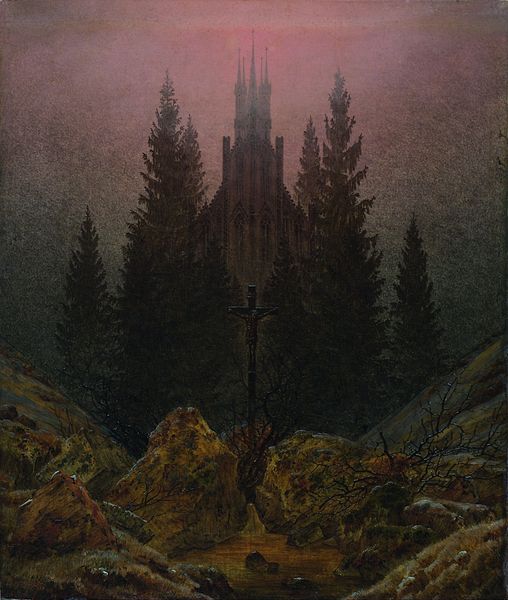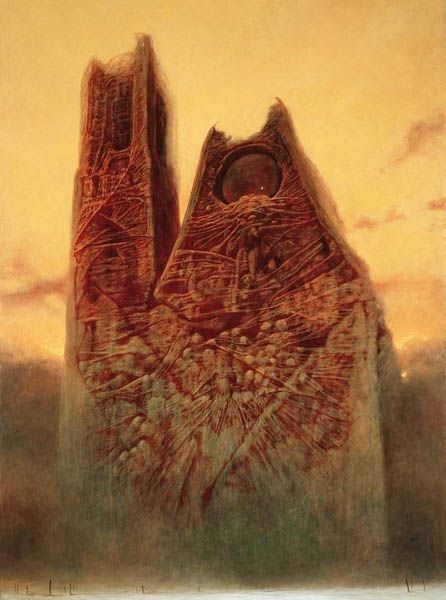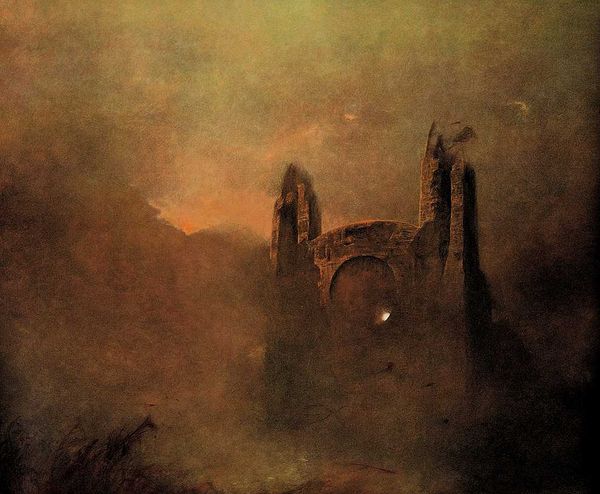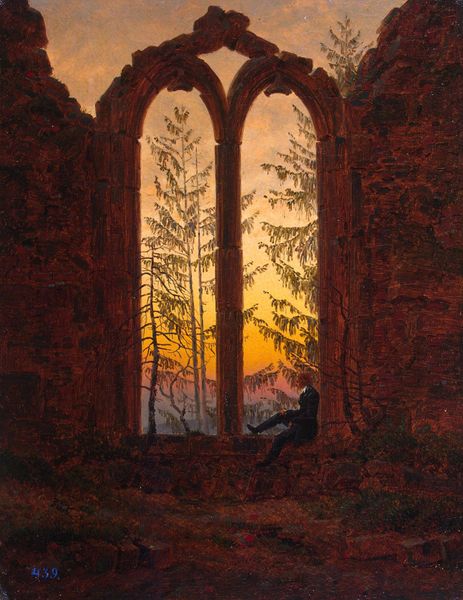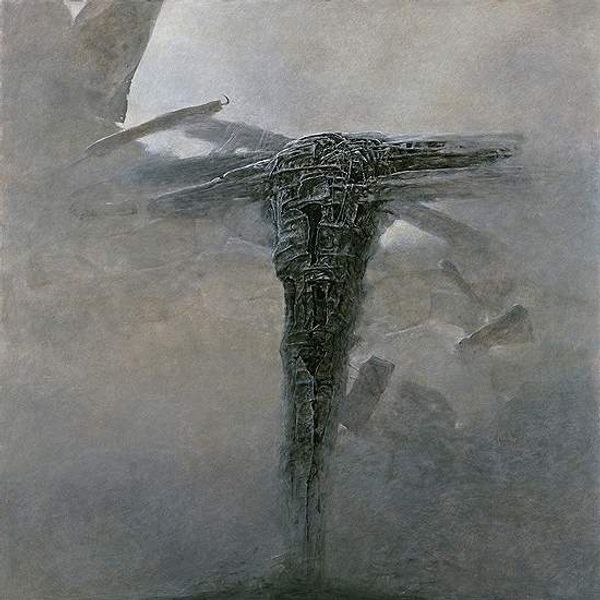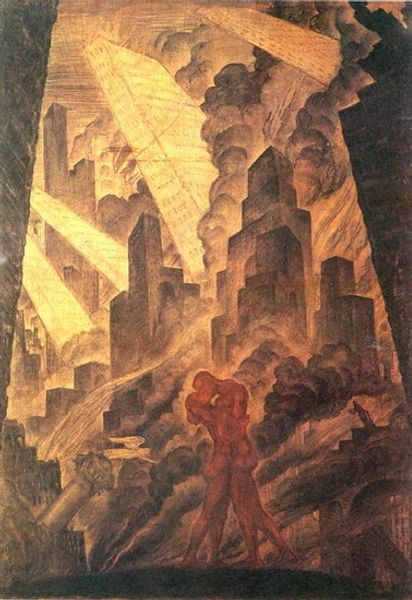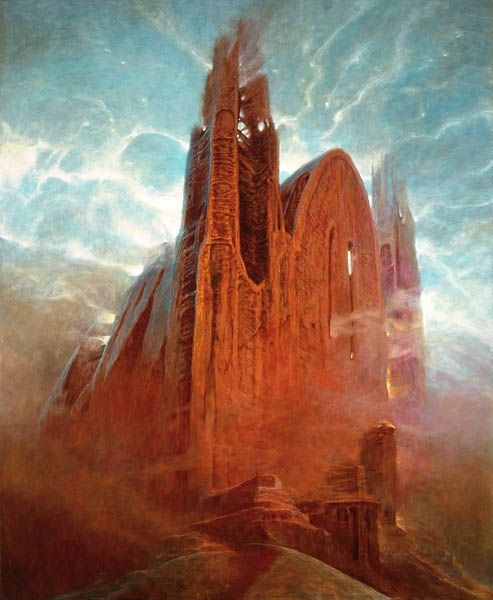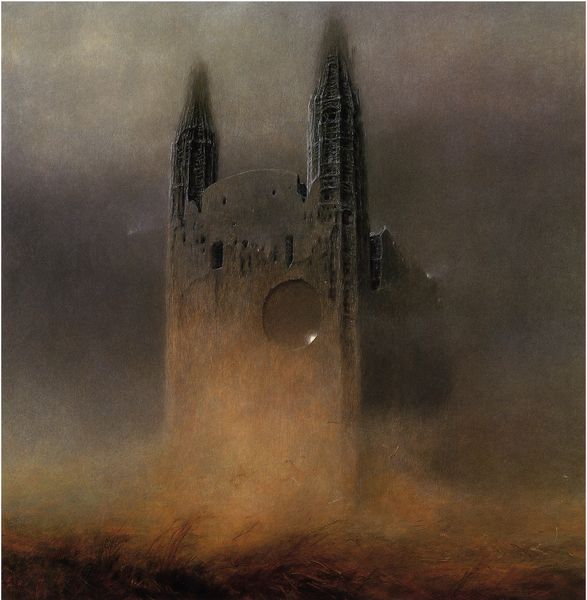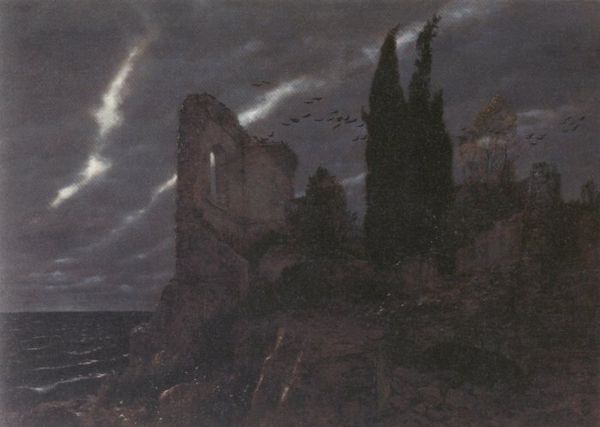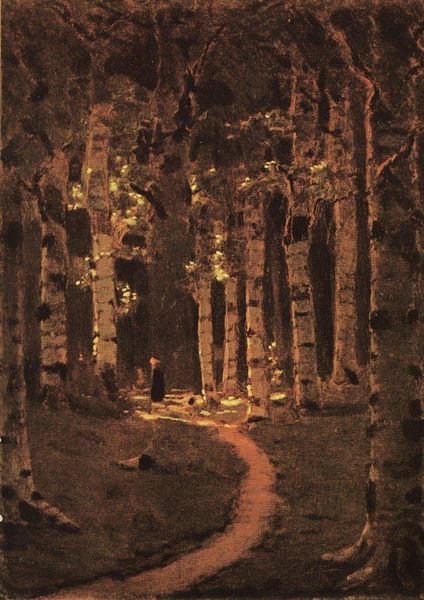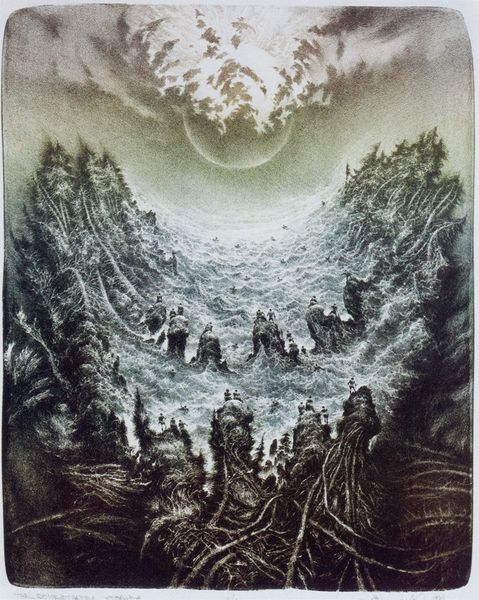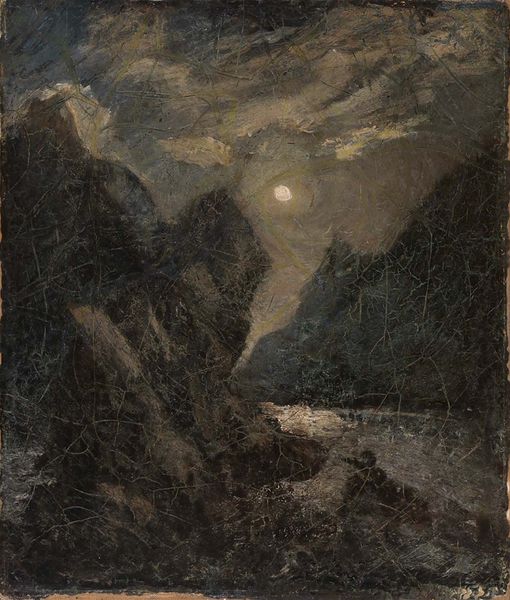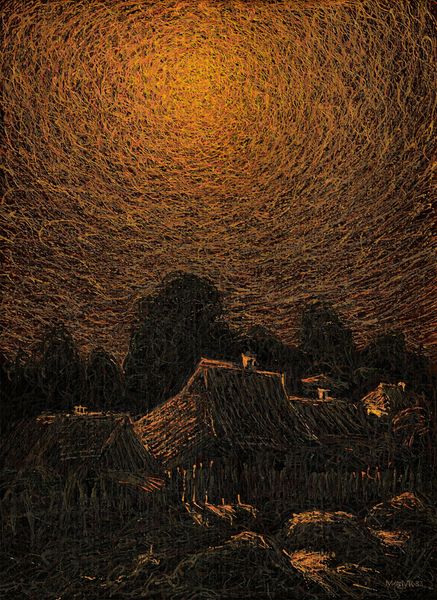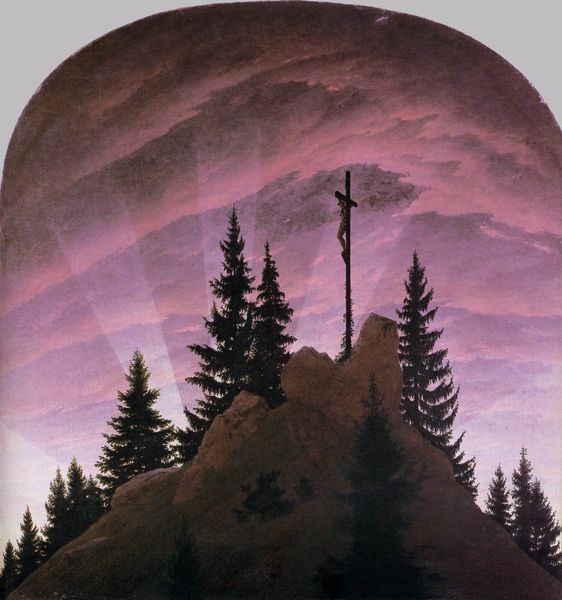
Copyright: Public domain
Caspar David Friedrich created "Cross and Church in the Mountains", at an unknown date, using oil on canvas. This work presents an intriguing interplay between nature, religion, and national identity, all recurring themes in Friedrich’s oeuvre. Created in Germany during a period of burgeoning nationalism, consider the powerful symbolism: the cross, a universal emblem of Christian faith, stands prominently in the foreground, while a Gothic church rises in the background. The Gothic style was considered German, linking faith with emerging national sentiment. The positioning of the cross may suggest the priority of personal faith over established religious institutions. Friedrich’s art often reflects a yearning for spiritual connection within the natural world, challenging the established norms of religious practice. To fully appreciate Friedrich's work, one can delve into historical archives, theological texts, and the socio-political context of early 19th-century Germany. It is through such investigation that art reveals its rich layers of meaning, shaped by the artist's hand and the world in which he lived.
Comments
No comments
Be the first to comment and join the conversation on the ultimate creative platform.
